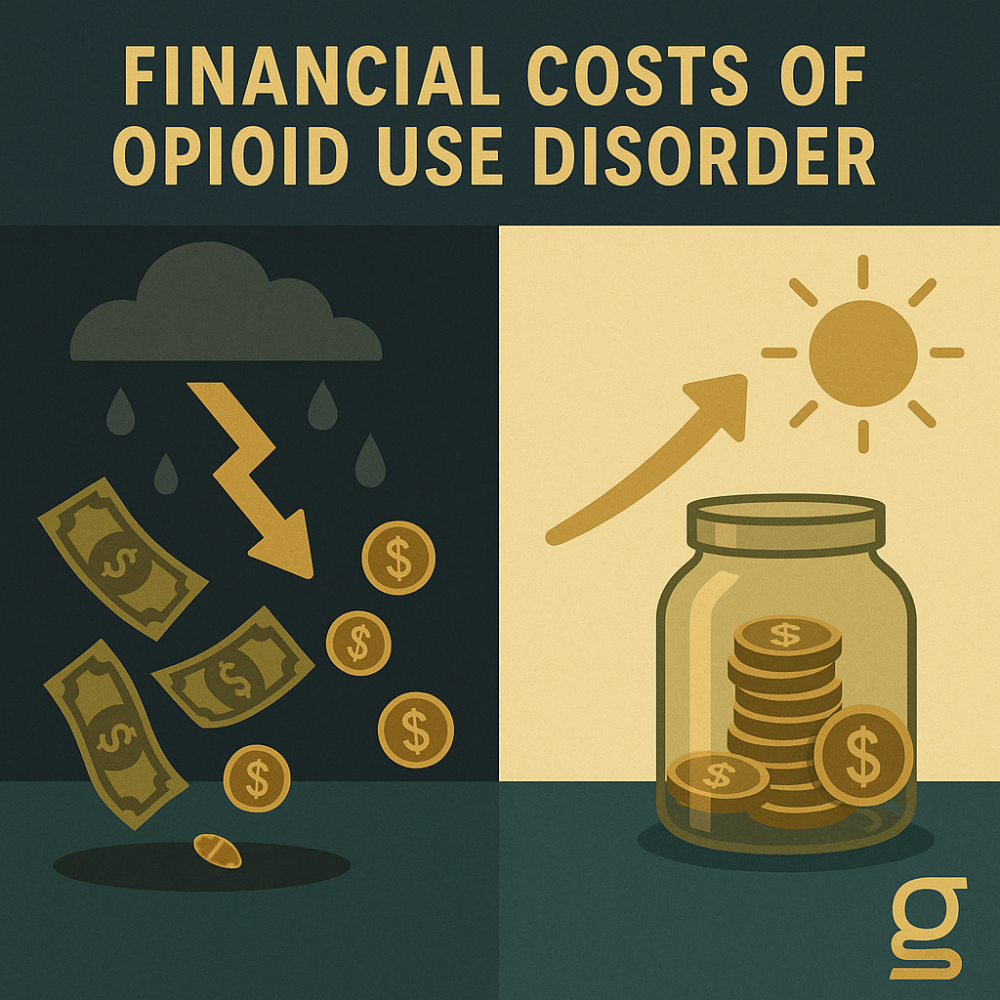Benzodiazepines, commonly known as ‘benzos,’ are medications classified as opioids that have found widespread use across a spectrum of conditions, from anxiety and insomnia to seizures.
Yet, these seemingly beneficial drugs come with a significant caveat – the potential for dependency and the increasing problem of benzodiazepine-related overdoses. In fact, benzodiazepines were involved in nearly 7,000 overdose deaths from January of 2019 to June of 2020. This accounted for 17% of all drug overdose deaths in the 23 states that were monitored.
Now, this begs the question, how long does it take to detox from benzodiazepine? To answer this, it must be understood that the detox journey isn’t a one-size-fits-all scenario but a personal process influenced by various factors.
What are Benzodiazepines?
If you’ve ever come across prescription drugs with the names Valium, Xanax, or Ativan, you’ve met some of the commonly prescribed benzodiazepines. Benzodiazepines are a class of drugs typically prescribed only for short-term use to treat a variety of conditions primarily involving disturbances in the central nervous system.

These medications, while differing in specific uses, share a common increase in misuse and subsequent dependency, leading to an increase in overdoses. According to the 2019 National Survey on Drug Use and Health (NSDUH), there was about a tenfold increase from 1999 to 2017 in the number of overdose deaths involving benzodiazepines.
Benzodiazepines are most commonly used to manage anxiety disorders, including generalized anxiety disorder and panic disorder, due to their calming and sedative effects. Additionally, they can be prescribed for seizure disorders, such as epilepsy, due to their anticonvulsant properties.
In other instances, benzodiazepines are utilized in the management of alcohol withdrawal syndrome, muscle relaxation, and as a premedication for medical or dental procedures to reduce anxiety and induce sedation.
Despite their therapeutic benefits, it’s crucial to use them only when prescribed and under careful medical supervision due to the risk of dependence and withdrawal symptoms.
Understanding Benzodiazepine Dependency and Withdrawal Symptoms
Underlying Causes of Benzodiazepine Dependence
The road to dependency on benzodiazepines often starts with prolonged use, particularly at high doses. Over time, the body adjusts to the presence of the drug, eventually reaching a stage where it requires the substance to maintain a semblance of ‘normal’ function.
Benzodiazepine Withdrawal Symptoms
When the body doesn’t receive the expected dose of benzodiazepine, benzo withdrawal symptoms or benzodiazepine withdrawal syndrome kicks in. One study revealed that 40% of people taking benzodiazepines for longer than 6 months experienced moderate-to-severe withdrawal symptoms.
The typical effects of benzodiazepine withdrawal symptoms include:
- Anxiety and panic attacks: Many people experience heightened anxiety, including severe panic attacks, which can be more intense than the anxiety that initially led to benzodiazepine use.
- Sleep disturbances: These can include insomnia, nightmares, and other disruptions to normal sleep patterns.
- Physical discomfort: This can manifest as muscle aches, headaches, and stiffness.
- Restlessness and agitation: Individuals may feel constantly on edge, unable to relax or stay still.
- Changes in perception: Some people report experiencing sensitivity to light, sound, taste, and smell during withdrawal.
- Cognitive and memory issues: Trouble concentrating, memory problems, and feelings of confusion can occur.
- Mood swings: These can include feelings of depression, irritability, and sudden mood changes.
- Gastrointestinal problems: Symptoms like nausea, vomiting, diarrhea, and loss of appetite are common.
- Tremors and seizures: In severe cases, individuals can experience shakiness, involuntary muscle movements, and even seizures.
- Increased heart rate and blood pressure: These can potentially lead to chest pain or feelings of palpitations.
Detoxification in the Context of Benzodiazepine
Detoxification, in the realm of benzodiazepine use, refers to the process of gradually reducing or tapering the drug dose until the body learns to function without it. It’s the body’s attempt to regain its drug-free equilibrium.
The detox process usually has two distinct stages. The acute phase is characterized by physical symptoms, while the post-acute phase is marked by potential psychological symptoms that may last for several months.
The specifics of your addiction treatment plan will depend on your individual circumstances, including the type and dosage of benzodiazepine you’ve been using, your overall physical health, and any co-occurring mental health conditions.
This might involve a gradual reduction of your benzodiazepine dosage (also known as tapering), along with the use of other medications to help manage withdrawal symptoms and other side effects.
Factors That Influence the Duration of Benzodiazepine Detox
While timelines vary significantly among individuals, acute withdrawal symptoms generally surface within a few days to a week following the last dose and can persist for several weeks. Post-acute withdrawal symptoms can linger for several months.
That being said, here are some of the factors that may influence the length of a benzodiazepine detox:
Type and Dosage of Benzodiazepine
The type of benzodiazepine plays a vital role in determining the detox timeline. Short-acting varieties typically result in a withdrawal process that, while intense, is relatively brief. Conversely, long-acting benzodiazepines often lead to a longer withdrawal period. The dose also matters: higher doses usually imply longer detox times.
Length of Use
The duration of benzodiazepine use can significantly influence the detox process. A long-term benzo addiction often results in more severe and extended withdrawal experiences.
Physical Health Condition
The individual’s overall physical health can dramatically impact the course and duration of withdrawal. Certain health conditions might complicate the detox process, extending its duration.
Psychological Factors
The mental and emotional state of an individual can heavily influence the detox timeline. High stress levels, for instance, can worsen withdrawal symptoms and potentially elongate the detox process.
Benefits of Medical Detox Vs. Dangers of Detoxing at Home
Medical Benzo Detox
Opting for a medical detox at a treatment center when discontinuing benzodiazepines provides a multitude of benefits.
This process takes place in a controlled, clinically supervised environment, prioritizing the patient’s safety. Healthcare professionals oversee the detox process, ensuring withdrawal symptoms are effectively managed, and any potential complications are promptly addressed.
Additionally, the detox program can be tailored to fit the patient’s individual needs and responses, creating a more personalized treatment plan. Psychological support is also available throughout the process, making it easier to navigate the emotional challenges associated with withdrawal.
Medical detox provides a structured pathway into further recovery options, including therapy and rehabilitation, setting the stage for long-term sobriety and reduced risk of relapse.
Benzo Detox at Home
Attempting to detox from benzodiazepine at home comes with substantial risks. The process involves weaning off a substance that your body has become dependent on, leading to withdrawal symptoms that can range from uncomfortable to life-threatening.
Some of these symptoms include anxiety, panic attacks, sleep disturbances, restlessness, and, in severe cases, seizures. Furthermore, emotional and psychological symptoms like depression can exacerbate, making the process even more challenging to navigate alone.
Stopping benzodiazepines cold turkey without medical supervision increases the risk of relapse, particularly if symptoms of withdrawal become unbearable. Hence, it’s generally advised to seek professional help and not attempt benzodiazepine detox at home.
What to Expect Post-Detox
Post-detox, individuals typically transition into a phase of rehabilitation and therapy, which serves as the backbone of long-term recovery. It’s also common to experience Post-Acute Withdrawal Syndrome (PAWS) after the detoxing process.
The Rehabilitation phase aids in building coping mechanisms, repairing damaged relationships, supporting individuals through Post-Acute Withdrawal Syndrome, and fostering new, healthier habits.
Understanding PAWS (Post-Acute Withdrawal Syndrome)
In some cases, individuals may experience PAWS, characterized by withdrawal symptoms that extend beyond the typical detox period. Recognizing and managing PAWS is critical for successful recovery.
Therapy
There are various therapeutic approaches employed during the rehabilitation phase. Cognitive Behavioral Therapy (CBT) is commonly used and has proven effective in helping individuals understand the triggers leading to substance misuse and developing strategies to handle such triggers effectively.
Motivational Interviewing, another technique, helps individuals find the motivation for change within themselves. Other therapies, such as group therapy and support groups, are also common post-detox.
Physical Wellness
Physical wellness is key. Nutritional counseling, physical fitness programs, and learning techniques to manage stress, such as through yoga or meditation, are often integrated into the rehabilitation process.
Treating Mental Health Conditions
It’s also common during this phase to address any co-occurring mental illness disorders and behavioral health conditions, such as depression or anxiety disorders, which often accompany substance use disorders. Addressing these conditions is crucial to reduce the risk of relapse.
Take the First Steps to Recovery
Detoxification from benzodiazepines is a highly personalized and variable process. The journey is fraught with complexities, underscoring the importance of seeking professional help for effective detox and recovery.
If you or a loved one are struggling with benzodiazepine addiction, reach out to us at Gallus Detox. Our medical professionals are passionate about creating a safe, clean, supportive environment to detox from benzodiazepines and start the journey to recovery.
FAQs About Benzodiazepine Detox
Is benzodiazepine detox dangerous?
Yes, benzodiazepine detox can indeed be dangerous, particularly if attempted without professional supervision.
The withdrawal process can trigger a range of symptoms, from uncomfortable physical discomfort to severe psychological distress and potentially life-threatening conditions such as seizures. Hence, it is strongly recommended to undergo detox in a medically supervised setting.
What does Benzodiazepine withdrawal feel like?
The experience of benzodiazepine withdrawal can vary considerably among individuals, largely depending on factors like the type of benzodiazepine used, the dosage, duration of use, and the individual’s overall health condition.
However, common symptoms include heightened anxiety, sleep disturbances, restlessness, physical discomfort like muscle aches, changes in perception, cognitive and memory issues, mood swings, gastrointestinal problems, and in severe cases, tremors and seizures.
What is considered long-term benzodiazepine use?
Generally, long-term benzodiazepine use refers to regular usage over a period of several months or more. However, it’s crucial to note that dependence can develop even quicker for some individuals, particularly with high-dose usage. The definition of ‘long-term’ can vary based on individual physiology and the specific drug in question.
Does everyone experience the same detox timeline?
No, the detox timeline can vary significantly among individuals. The length of time is influenced by several factors, including the type of benzodiazepine used, the dosage, the duration of use, and the individual’s overall physical and psychological health.
For example, withdrawal from short-acting benzodiazepines usually begins sooner but may also end sooner, while withdrawal from long-acting benzodiazepines typically starts later and lasts longer. It’s always recommended to discuss detox timelines with a healthcare provider who can provide a personalized estimate.
Image Credit – “Xanax 2 mg” by Dean812 (https://www.flickr.com/photos/24732206@N00/1269480139 ) is licensed under CC BY 2.0. To view a copy of this license, visit https://creativecommons.org/licenses/by/2.0/?ref=openverse.


 Steve B
Steve B 

 Casey Wilson
Casey Wilson